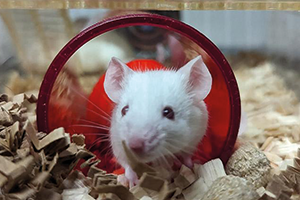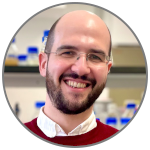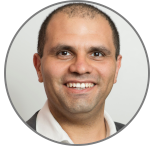The Integrative Biology of Ageing is a multidisciplinary approach embedded at the University of Cambridge to increase understanding of the ageing process and develop strategies for extending human healthspan. Through increased research in core areas of ageing biology we can unlock new understanding of the fundamental mechanisms of ageing which will pave the way for therapeutic breakthroughs and progress in preventative medicine. Multidisciplinary research teams in Cambridge are collaborating together across scales, tissues, species and disciplines with a unified vision to deliver much needed progress and impact in the ageing field.
Collaboration and Engagement
To drive progress and innovation across healthy ageing research, the Reproduction, Development and Lifelong Health Research Theme has been hosting meetings with researchers, industry partners and policymakers.
An initial meeting in June 2022 allowed researchers within the University of Cambridge to connect and discuss questions surrounding early identification of those at risk from chronic age-related conditions, intervention before initiation of symptoms and prevention of disease onset. This was followed by a second event in January 2023, in collaboration with Altos Labs, which expanded the collaboration to a wider network of Departments and Institutes.
In October 2023, a third meeting further consolidated collaborations between the University of Cambridge and the Babraham Institute in the healthy ageing space. The event featured scientific talks and collaborative discussions on the future of healthy ageing research, and how the two institutions can be best positioned to tackle its biggest challenges.
This multidisciplinary team is poised to drive impactful progress by increasing our understanding of the biology of ageing and developing strategies to extend healthy human lifespan. The team are now pursuing ambitious new opportunities to deliver real-world impacts in healthy ageing in our lifetime.
Recent Highlights
#Profile

The master of mutations: Dr Alex Cagan on cancer resistance and healthier ageing
Dr Alex Cagan – illustrator, geneticist and explorer of animal DNA – is offering a new perspective on this tapestry of life. His work has profound implications for the pursuit of healthy ageing and the possibilities of cancer resistance.
#Funding

£3 million UKRI funding to support research into better health, ageing, and wellbeing
UKRI funding of £3 million was awarded to the University of Cambridge to support a new research cluster, as part of the MRC National Mouse Genetics Network (MRC NMGN), focused on improving existing models of ageing with the aim of improving lifelong health and wellbeing.
#Research

Can we add more life to our years?
From the age of 60, at least half of us will start to develop an age-related condition. And once one appears, more will often follow. With care systems already overwhelmed, what if we could target the causes of age-related decline, and reverse them? Research advances at the University of Cambridge mean that the eternal quest to reverse the march of time may soon become a reality.
Academic Leads
Contributing Researchers
Catherine Aiken, Obstetrics and Gynaecology
Maria Alcolea, Cambridge Stem Cell Institute
Srinjan Basu, Cambridge Stem Cell Institute
Richard Bethlehem, Psychology
Guy Brown, Biochemistry
Alex Cagan, Genetics, Veterinary Medicine and Pathology
Lucy Cheke, Psychology
Anne Corcoran, Babraham Institute
Della David, Babraham Institute
David Fernandez-Antoran, Gurdon Institute and Pathology
Dino Giussani, Physiology, Development and Neuroscience
Namshik Han, The Milner Institute
Jon Houseley, Babraham Institute
Laura Itzhaki, Pharmacology
Gabriele Kaminski Schierle, Chemical Engineering and Biotechnology
Walid Khaled, Pharmacology / Cambridge Stem Cell Institute
Janet Kumita, Pharmacology
Matthias Landgraf, Zoology
Michelle Linterman, Babraham Institute
Rick Morimoto, Northwestern University
Andrew Murray, Physiology Development and Neuroscience
Emma Rawlins, Gurdon Institute
Wolf Reik, Altos Labs
Rahul Samant, Babraham Institute
Paul Schofield, Physiology, Development and Neuroscience
Jon Simons, Psychology
Ewan St. John Smith, Pharmacology
Catherine Wilson, Pharmacology
Work with us
We welcome opportunities to collaborate with industry partners, policy makers and academics. If you are interested in working with us, please contact Dr Abi Herrmann, Research Strategy Manager.




